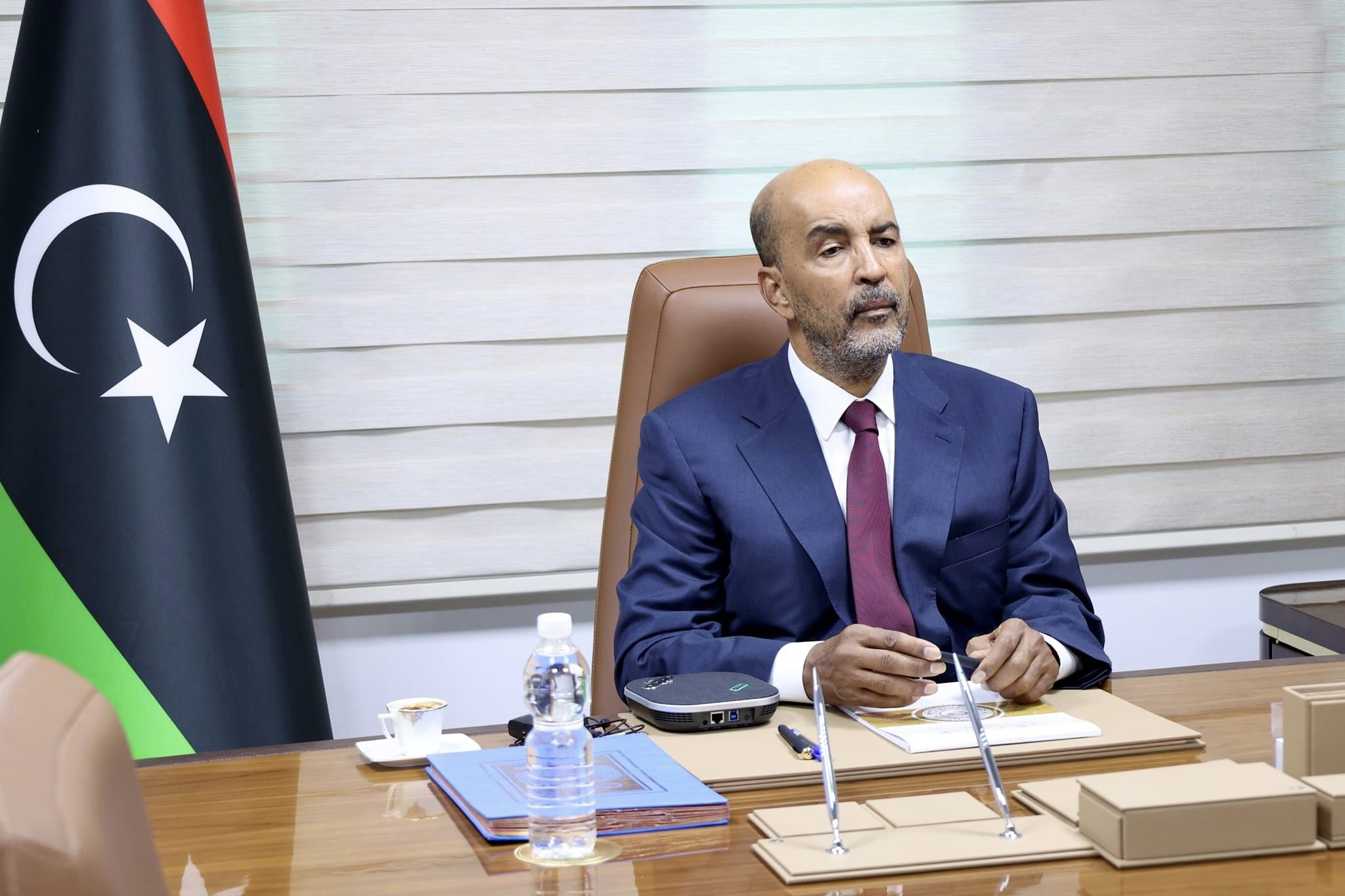Al-Koni stresses the necessity of stabilizing the situation in the Sahara region.
Pulbished on:
Tripoli, September 5, 2023 (LANA) - The representative of the Presidential Council, Musa Al-Koni, stressed the necessity of stabilizing the situation in the Greater Sahara region, and that any negative ignition in it will affect the countries of the region, and any positive move will contribute to its stability..
This came as he inaugurated, through communication techniques, the work of the "high-level working session", which was held in Tunis between Libyan and European Union experts, to draw a road map for the strategies of the "One Desert" initiative.
He pointed out that Libya has moved, since the outbreak of the crisis in Niger, towards Chad and Abuja and communicating with all parties in order to find effective peaceful solutions. And his confirmation of this through his various presidential meetings during the BRICS summit in South Africa recently, and he discussed with a number of leaders, presidents and members of ECOWAS the repercussions of the situation in Niger on the entire region.
Al-Koni said that Libya, like the rest of the world, supports the legitimacy and democratic choice of the people in Niger, which was chosen through the ballot box by President Mohamed Bouazum. He represents for us the ruling authority in Niger.
He pointed out that Libya fears that Niger will enter into a war that will deteriorate the security situation in it and increase its negative impact on the countries of the region, especially Libya.
He explained that the working session that brings together Libyan and European Union experts is in the process of drawing up a road map for a single desert initiative, which is evidence of the region's countries' determination to continue trying to heal the rift in the desert region.
Al-Koni called on the European Union to make a redoubled effort to support these efforts that seek to achieve security and stability in the “one desert” space.
He affirmed his communication with the Secretary-General of the ECOWAS countries to coordinate visits to Abuha, Niamey and Bamako, in an attempt to find solutions to defuse the war in the region.




